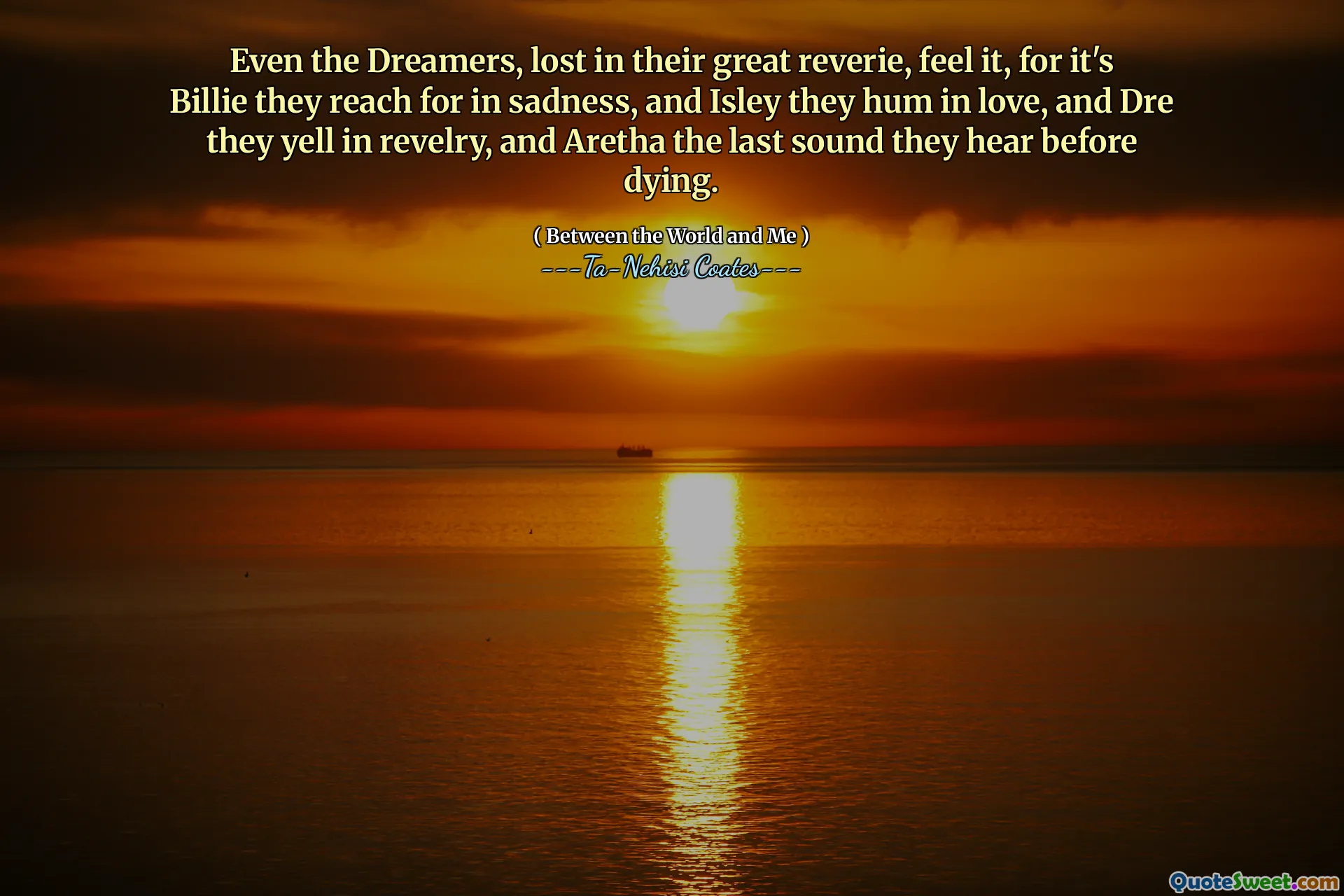
Even the Dreamers, lost in their great reverie, feel it, for it's Billie they reach for in sadness, and Isley they hum in love, and Dre they yell in revelry, and Aretha the last sound they hear before dying.
This quote beautifully captures the universal power of music and its deep emotional resonance within the human soul. It suggests that, regardless of being lost in dreams or reveries, individuals remain profoundly connected to music and the cultural icons that define emotional expression. References to Billie (likely Billie Holiday), Isley (probably the Isley Brothers), Dre (Dr. Dre), and Aretha (Aretha Franklin) exemplify how different genres and eras of music serve as emotional anchors—offering solace in sadness, love in companionship, celebration in revelry, and peace in final moments. The imagery evokes how music transcends mere sound; it becomes a vital part of our identity and emotional landscapes. Dreams often symbolize our innermost hopes, fears, and aspirations, and within those ides, the subtle yet persistent touch of these legendary artists reminds us of our shared humanity. Music becomes a language that communicates feelings words often cannot, linking us to memories, to loved ones, and to ourselves. The line about Aretha, specifically, underscores the idea that music can become the last comforting whisper before life's end—a testament to its profound significance. Reflecting on this, we're reminded that art, particularly music, sustains us through life's most turbulent and tender moments, connecting individual existence to a collective emotional tapestry woven by these unmistakable voices. This poesy celebrates music as an eternal, universal force that embodies love, sorrow, joy, and farewell—an everlasting soundtrack to our human journey.





